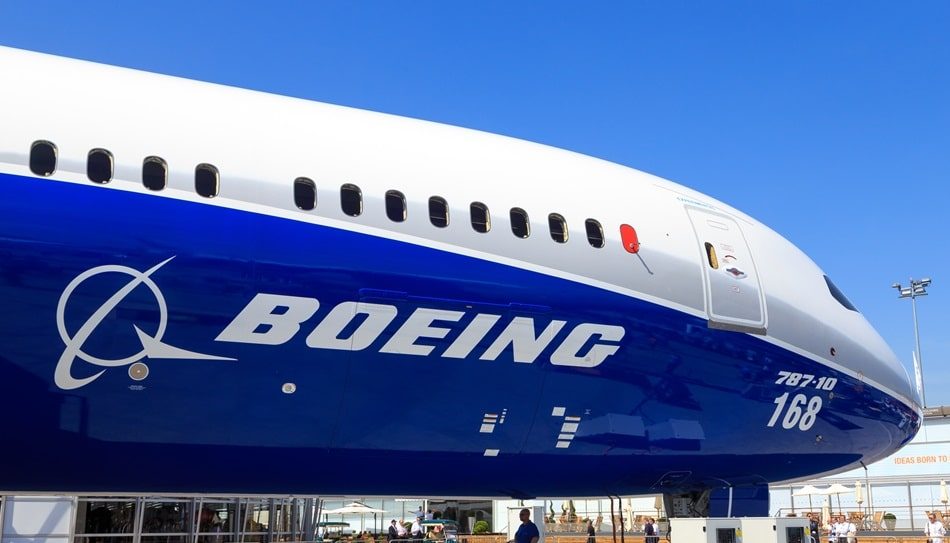Boeing has frozen hiring and is considering temporary furloughs, as a strike by over 30,000 workers entered its fourth day on Monday.
The strike, driven by the International Association of Machinists and Aerospace Workers (IAM), has halted production on key jet programs like the 737, 767, and 777.
It started just as the company was ramping up efforts to accelerate production.
Misjudged Labor Discontent
The strike vote, which saw 96 percent of union members backing the walkout, reflected deeper frustrations within the workforce than Boeing executives anticipated.
Union members are dissatisfied with Boeing’s offer of a 25 percent wage increase over four years. They rejected the deal due to the exclusion of an annual performance bonus and lingering frustrations over pensions cut a decade ago. Union members had initially sought a 40 percent wage hike.
CFO Brian West acknowledged the financial risks of the strike in a letter to employees on Monday, emphasizing the need for Boeing to preserve cash and safeguard its future.
West stated.“This strike jeopardizes our recovery in a significant way, and we must take necessary actions,”
Need Career Advice? Get employment skills advice at all levels of your career
Halt on Purchase Orders and Supplier Concerns
Boeing has temporarily stopped issuing most purchase orders for parts on affected jet programs, a rare move that has sent shockwaves through the aerospace supply chain.
The company, already grappling with over $60 billion in debt and a quality crisis related to its 737 MAX, now faces additional operational disruptions.
The freeze on orders has raised concerns among suppliers, many of whom are still recovering from the economic impacts of COVID-19.
Smaller suppliers may face layoffs due to decreased demand, which could further delay Boeing’s recovery once the strike is resolved.
Production and Financial Losses
The financial toll of the strike is expected to be steep. According to Chris Olin, an equity analyst at Northcoast Research, Boeing could lose up to $102 million in daily revenue during the work stoppage.
With production expected to fall by 33-35 jets, the overall financial hit could reach as high as $3 billion.
Boeing’s financial stability is also under scrutiny.
Debt-rating agencies like S&P Global Ratings have warned that a prolonged strike could lead to a downgrade of Boeing’s credit rating, pushing the company’s debt into junk status.
Boeing’s shares have already fallen nearly 4 percent, nearing a two-year low.
Union Negotiations Resume
The IAM and Boeing are set to return to negotiations on Tuesday with the help of federal mediators. Union leaders are pushing for higher wage increases and improvements to pension contributions.
While union members do not expect Boeing to reinstate the defined-benefit pension plan eliminated a decade ago, they hope to leverage that demand to secure a better overall deal. Many workers remain resolute despite the financial pressures of the strike.
Thinh Tan, an engineer in the 737 MAX factory Said: “I can go for six weeks, eight weeks, but it’s up to Boeing management to decide when they want to offer a fair deal,”.
The union is providing $250 per week to striking workers, but many are already feeling the financial strain.
Broader Implications for Boeing
This strike is the eighth in the history of Boeing’s IAM chapter, with previous strikes in 2005 and 2008 lasting 28 and 57 days, respectively. The longer the current strike continues, the greater the risk to Boeing’s recovery efforts. The company has been battling supply chain disruptions, quality control issues, and financial strain for months.
The timing of the strike, just as Boeing was attempting to resolve these challenges, adds another layer of complexity to new CEO Kelly Ortberg’s efforts to steer the company back to stability.
As the strike continues, Boeing’s workforce remains determined to secure a better deal, while the company faces mounting financial and operational pressures.
How the two sides resolve this conflict will likely have long-lasting implications for Boeing’s future.




